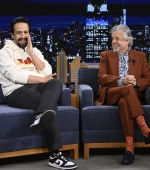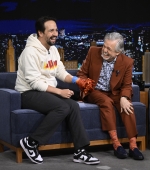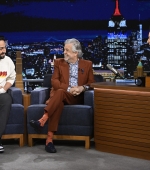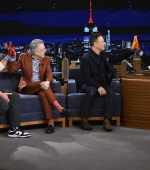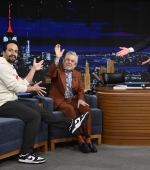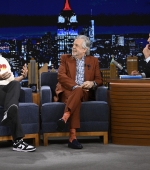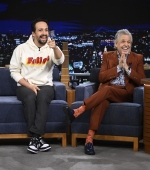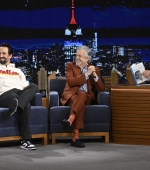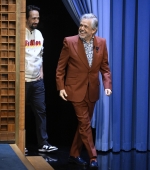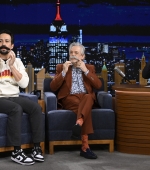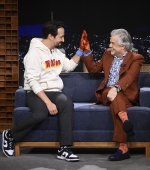Lin-Manuel Miranda wrote an op-ed for Variety to reflect on the most significant changes of the past 12 months in the American theater community and to pinpoint the issues and opportunities that are most important to restoring the industry to health in 2021 and beyond.
Read it below.
The loss to the theater community is already incalculable. It’s shown people who go into this way of life how fragile it is, how dependent we are on each other, and when the ability to gather is taken away, how long it can take. I’ve written rec letters for fellow actors who are going into other lines of work. That’s a real hole, and I don’t know who is going to come back on the other side of it.
Actors are infinitely adaptable and figure out other ways to make things work. To be an actor is to figure out your side hustles. I could list mine off pre-In the Heights: I was a bar mitzvah dancer, a substitute teacher, I wrote jingles. You do what you can to make the rent so you can do what you love. The things we don’t talk about are the seamstresses and the front-of-house staff and the ushers and the restaurants around the theater district. I just wrapped shooting my first film, Tick, Tick… Boom! It’s not just actors; it’s an entire ecosystem that exists around the theater business.
The silver lining is, the pandemic has also shown us what an appetite there is and will be for live theater. I don’t think theater is dead. I think it will take a while for people to feel safe again, but the hunger for theater is so real. So I’m not worried about the audience on the other side of this, but I do worry about the many ecosystems that have been left adrift in the wake of us not being able to gather.
There was a demand for Hamilton on Disney Plus, and I was so grateful we were able to put that out into the world. What’s been thrilling about it is I have heard firsthand from other musical theater creators that the race to tape their live shows is on! And that’s great because for so long the conventional wisdom was you can’t make a movie of your show too soon because it will eat the audience that will see it live, when everything we’ve seen is that the reverse of that is true.
The Rent movie came I think nine years into Rent’s run, and I think it bought it another three years on Broadway because people were reminded of how much they loved that show. And the same is true of the Phantom movies, and I think it’s the reason the Chicago musical is still running and has run even longer than A Chorus Line.
So I hope Hamilton has forever demolished that. Showing the world what you’re making in the live theater space, while it’s not the same as live theater and nothing can be the same as being in the space with people, it can also be an enormous asset.
Even virtually, I’ve seen some thrilling live theater this year, from Andrew Scott at the Old Vic to Michael Urie’s production of Buyer & Cellar that streamed online as a benefit for The Actors Fund. So I don’t think there’s putting any of that back into the bottle. I think when theater comes back it’s going to be in conversation with technology in an entirely different way. I don’t think we go back to a world where a show premieres on Broadway, and then no one can see it unless they have two hundred bucks. I think producers are going to have to start thinking about how they’re going to capture [their work] because in capturing it they can actually capture a much larger audience for their live show.
Just like conversations in Hollywood around video on demand and exclusivity in cinemas are changing, a similar conversation is going to happen with theater.
Also, the question that Hollywood is asking, Broadway and theaters are also asking. Is there as much diversity in the ranks, in the administrative offices, behind those theaters and above those theaters? The answer is no, so we’re having conversations in the Hamilton ecosystem when it comes to stage management and the folks we hire to maintain the quality of our various productions. These are conversations that often get swept under the rug both in Hollywood and Broadway because it’s business as usual and it’s the next movie and we gotta go and we gotta go and we gotta go. But suddenly the world stopped. We don’t have that excuse anymore. You don’t have the excuse of we’ll deal with it on the next one. We have to deal with it now, and so that’s been really emboldening and really exciting, and so we’ve been having those conversations within our company and hope to return to a more equitable ecosystem than the one we started in.
I think it’s going to take a bit of follow-up in terms of the incredible activism we’ve seen from young people and people of color this year, in terms of really putting your actions where your mouth is, in terms of representation in front of and behind the camera and in front of and behind the stage. I feel hope about it.
As told to Claudia Eller
